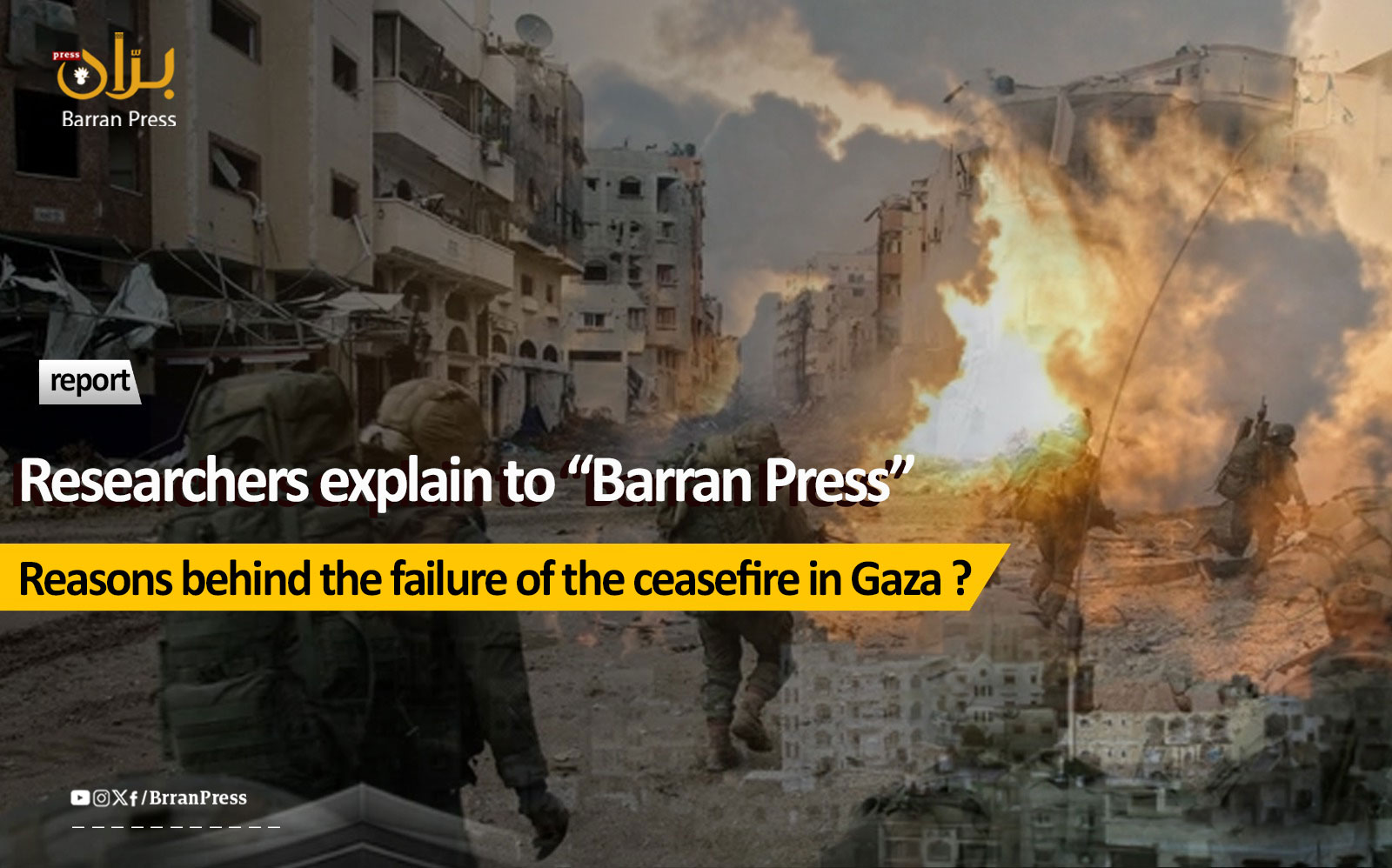


Barran Press - Nawaf AlHemyari
Impossible conditions
Dr. Shaimaa Samir, an Egyptian researcher in international relations speaking to Barran Press, attributes the difficulties in achieving a ceasefire in Gaza to a multitude of interconnected factors, each carrying significant weight.
One primary issue is the division among Palestinian factions, particularly between Hamas and Islamic Jihad. This internal discord complicates the establishment of a unified ceasefire agreement acceptable to all parties involved.
On the Israeli side, Samir notes that the conditions imposed by Israel are also challenging for the Palestinians to accept. Key demands include the release of all individuals captured by Hamas, the disarmament of Palestinian factions, and the destruction of Hamas’s military capabilities to prevent future security threats to Israel—demands that are unlikely to be accepted by Palestinian groups.
As Israel expands its military operations and resorts to targeted assassinations of resistance leaders, Samir argues that this will only strengthen the resolve of fighters against the occupation. She suggests that the blood of martyrs will serve as renewed motivation for resistance, highlighting the ongoing escalation and the insistence of factions to respond.
Moreover, Iran has maintained its right to retaliate, particularly following the assassination of its ally, Hassan Nasrallah. After acknowledging the futility of negotiations, Iran launched an operation dubbed "Promise 2," firing numerous rockets into occupied Palestinian territories. Many of these projectiles landed within occupied areas, exposing the deficiencies of Israeli air defenses and undermining the notion of an invincible military.
Political Calculations and Regional Implications
Lebanese political analyst Amin Bashir describes the current Israeli escalation to Barran Press as a strategic opportunity for Prime Minister Netanyahu, who seeks to leverage the U.S. electoral climate to target regional adversaries, from the Houthis and Hezbollah to Hamas and potentially Iran. He argues that Netanyahu is exploiting this “golden opportunity” to retaliate against various foes.
Bashir warns that while Israel is cautious to avoid a full-scale war that could drag the U.S. into conflict, it also seeks to achieve military objectives to avoid the perception of failure. He believes that if Israel enters a broader war, it could lead to increased oil prices and support for opposing states.
For both Washington and Tehran, the situation is precarious. An escalation could severely undermine ongoing negotiations aimed at a nuclear agreement with Iran. Al-Fateki argues that Iran is also reluctant to engage in a large-scale war, preferring to bide its time until after the U.S. elections to finalize its negotiations.
Regional Consequences
Bashir points out to Barran Press that the situation poses significant risks for a larger regional conflict, particularly with the emergence of the concept of “unity of theaters,” which refers to coordinated efforts among groups supporting Gaza. This term gained traction with the recent events surrounding Al-Aqsa.
He notes that, for the first time in decades, there is a concerted effort to link the conflicts in Gaza and southern Lebanon. However, he believes that this connection is detrimental to both regions, as both Gaza and southern Lebanon suffer due to these intertwined objectives, primarily benefiting Iran.
Despite attempts by the Lebanese government to disentangle the conflicts, particularly after the assassination of Nasrallah, any efforts to establish a ceasefire under UN Resolution 1701 were thwarted by Iranian opposition.
Al-Fateki asserts that Israel aims to broaden the conflict to create a regional dimension, which he believes will sustain Western political and military support while projecting an image of fighting for its existence. He warns that the region is on the brink of a broader war that could engulf multiple nations, including the United States.